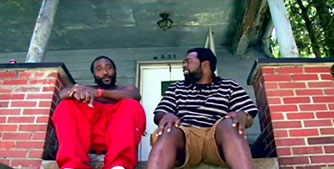"WE NEED TO RECOGNIZE THAT THE MOST SERIOUS DOMESTIC PROBLEM IN THE UNITED STATES TODAY IS THE WIDENING GAP BETWEEN THE CHILDREN OF THE RICH AND THE CHILDREN OF THE POOR."
Tamar Lewin, "Up from the Holler," in Class Matters, ed. Bill Keller (New York: Times Books, 2005), 70.
back to top
back to top
A LOT OF TIMES WITH THE LOWER CLASS YOUR PARENTS ARE ADDICTED TO DRUGS OR HAVE MENTAL PROBLEMS...
(0:54 min)
I WILL NEVER GET OVER NOT HAVING ENOUGH MONEY WHILE I WAS GROWING UP...
(0:21 min)
I REMEMBER ASKING MY MOTHER IF WE WERE POOR AND SHE SAID "YES, OF COURSE WE'RE POOR..."
(0:38 min)
CLICK TO PLAY AUDIO
When I became a Skidmore parent, I developed a new and different view of the campus, with my son's experiences and our socioeconomic class, as opposed to others on campus. My son became involved with a young woman here, and they continued dating after graduation and had plans of moving together to San Francisco. Her family was quite wealthy. And he, as they were planning on moving out together, discovered that the inequity in the social classes really presented a problem for them. She had just this enormous budget for an apartment, and he was unable to really even pay half of that. And in the end, their relationship sort of dissolved naturally, because it just sort of didn't work out. But it was interesting that while they were here on campus, there was sort of an equalizer; and then afterwards, it became too difficult to hold together.
Classless Society Stories Project
WHEN I BECAME A SKIDMORE PARENT, I DEVELOPED A NEW AND DIFFERENT VIEW OF THE CAMPUS...
CLICK TO READ
CLICK TO PLAY AUDIO
CLICK TO PLAY AUDIO
back to top
-
FAMILY CLASS
In the United States of America, most children born to middle-class parents will end up as middle-class adults. Most born to upper-class parents will end up rich, most born to working-class parents will end up in working-class jobs, and most born to poor parents will end up poor. Most Americans, rich or poor, don't like to hear these facts because they run counter to a deeply held, widespread belief in social mobility, the myth of the "self-made man" (almost always a man in the myth), and the power of individualism, opportunity, the personal work ethic, and moral virtue. Yet the statistics of parentage and ultimate class position suggest that no choice we make will have a greater impact on our economic class than the status of the family we are born into.
-
SLIM CHANCES
Noteworthy exceptions to this rule include Barack Hussein Obama, born to a foreign father and a middle-class mother with a working-class income, and Bill Clinton, born in even humbler circumstances in Arkansas. Examples like theirs fuel the dream of American social mobility, and the mass media love stories of poor and middle class kids who rise to affluence, power, and social prominence, attainable through sports, entertainment, or business. American parents themselves, regardless of class, tell their kids, "You can be anyone you want to be." But what are the real chances of achieving such success? A 2005 study found that a child coming from a family in the bottom 10 percent income bracket had less than a 2 percent chance of rising into the top 10 percent - a 98 percent of not making it to the top.
-
PARENTAL GUIDANCE
The role parents play in their children's eventual class status entails more than wealth or poverty. Parental expectations concerning education and careers help shape children's visions of what they can become. Those from wealthy families will far more likely attend college, graduate, and pursue graduate preparation for professional careers. Those from poor families, if they do reach college, will more likely pursue vocational and technical degrees, often from community colleges; they are also far less likely to graduate. Financial pressures on students whose parents can't help them pay college tuition and living expenses account for some of this disparity, but not all of it.
-
A LEG UP
Children of middle-class and affluent families typically arrive at college with stronger high school preparation, acquired at private schools and strong public schools in wealthier neighborhoods. After graduation, their economic class advantages continue as they enjoy access to their parents' professional and business networks, assisted by an upbringing that teaches them how to negotiate those networks socially. Financial help from home early in their careers allows them to pursue entry-level internships or graduate study. None of these advantages constitutes an automatic ticket to adult success, but they help far more than Americans like to believe.


